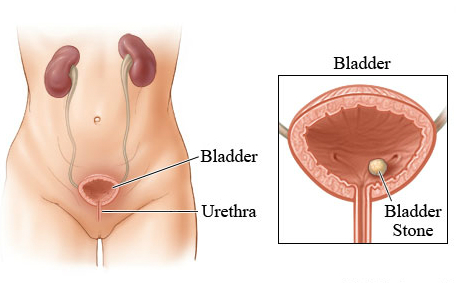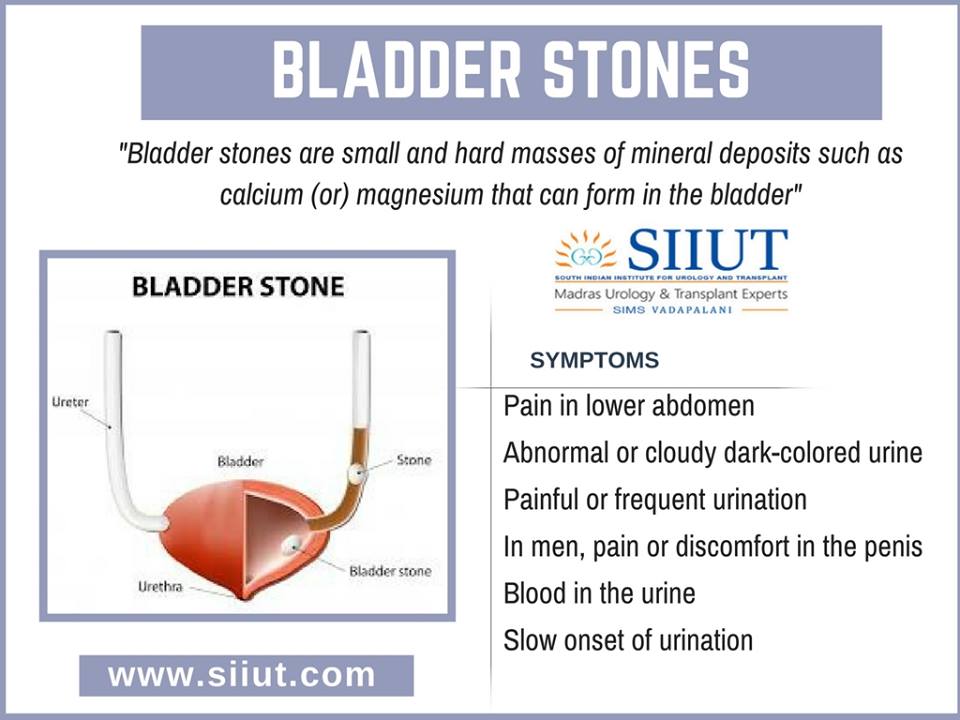Bladder stones are small and hard masses of minerals deposits such as calcium (or) magnesium that can form in the bladder. Bladder stones forms and develops when the urine becomes concentrated and causes urine to crystallize. Most of the people who are having bladder stones have no problems (or) symptoms, even when their stones are large. However, if they left untreated they may lead to further medical problems.

SYMPTOMS
when a stone irritates the walls of bladder (or) blocks the urine flow, signs and symptoms can develop.
-
Pain in lower abdomen
-
Abnormal or cloudy dark-colored urine
-
Painful or frequent urination
-
In men, pain or discomfort in the penis
-
Blood in your urine
-
Slow onset of urination
CAUSES
Bladder stones generally begin when your bladder doesn’t empty completely. The most common causes of the bladder stones include
-
Prostate enlargement – If the prostate is enlarged, it can press on the urethra and cause a trouble in the flow, leaving the bladder unemptied.
-
Neurgenic bladder – If the nerves that communicate between bladder and brain are damaged, in a stroke or spinal injury, then the bladder may not empty fully.
-
Kidney stones – If kidney stones can migrate down the ureters and grow into bladder stones.
-
Inflammation – Bladder stones can enlarge if your bladder becomes inflamed. UTI and radiation therapy to the pelvic area can both cause bladder inflammation.
-
Cystocele – In women, the bladder wall can become weak and drop down to the vagina, this can affect the flow of urine from the bladder.

DIAGNOSIS
Diagnosis of bladder stones may involve- physical examination, urine test for microscopic amount of blood, bacteria and crystallized minerals, X-ray of your kidneys, ureters and bladder helps doctor to find out whether stones are there in your urinary system.
Increase your daily fluid intake 2-3 liters to lower the concentration of urine, regularly empty your bladder, avoid constipation (laxatives are preferable) these are the basic measures recommended to prevent bladder stone formation.

